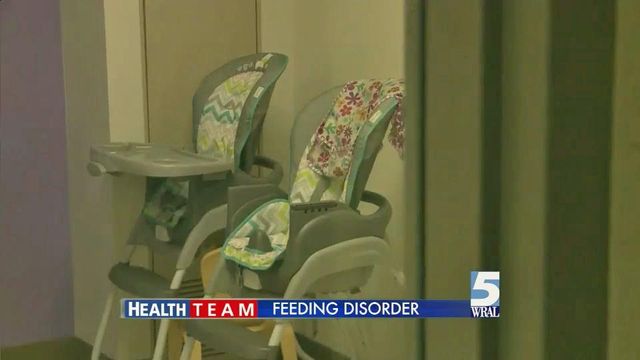Feeding disorders: Picky eating can become a serious health issue
It's common for kids to be "picky" about what they eat, but many children have a more serious problem. They're called "feeding disorders," and they're a complex set of feeding and swallowing problems that impact normal feeding behavior development.
Posted — UpdatedPicky eating can lead to "feeding disorders," serious medical conditions that can impact kids' physical and mental health when left untreated. Luckily, there's a way parents can seek help.
Jonah Meyer, a picky eater, was diagnosed with a feeding disorder at age three.
"He really only had about three foods that he would reliably eat, and I just thought it was normal," said his mom, Kelly. "I didn't really think anything of it."
Jonah is one of many children who battle this disorder.
Last year, a study at Duke University showed that 20 percent of children ages two to six are "selective" eaters. Three percent are considered "severely selective" and are more likely to suffer anxiety or depression from lack of food and nutrition.
In extreme cases, children with feeding disorders may need professional therapy or medication.
Dr. Carrie Brower-Breitwieser, a pediatric psychologist, said, "These are kids who do not eat enough food to sustain life. When we miss those key things, our brains aren't growing, and they're not working the way they're supposed to."
Health risks aren't the only thing to worry about. The difficult task of convincing kids with these disorders to eat can take a toll on parents, too.
According to Dr. Brower-Breitwiesser, when meal time is traumatic, parents and children begin to clash. "We get into these battles that can really make the negative association with food carry onto the family," she said. "The stress that goes into feeding is significant, because it's something you do with a child three to five times a day."
Severe feeding disorders can be life-threatening, so intervention is crucial.
Parents are encouraged to enroll children suffering from these eating disorders in an intensive program, where they'll spend most of their days having meals with staff.
"The [programs] don't really give the kids an option to say no," said Kelly. "The kids have to eat the food, and if they don't, they just help them eat it."
The program isn't easy for the kids to adjust to, but it's worth their discomfort.
"We will often see kids come in who have learned to throw food or to throw tantrums - or even to vomit on command when they see food present," she said. "We'll work to reduce those behaviors."
After completing this program, Jonah's eating disorder became manageable, and he's back on track to being a healthy eater. His mom credits all the success to these intensive programs.
"He wouldn’t be where he's at now without it," she said.
• Credits
Copyright 2024 by Capitol Broadcasting Company. All rights reserved. This material may not be published, broadcast, rewritten or redistributed.





